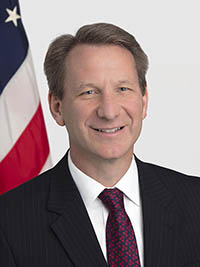The legacy of the National Cancer Act: 50 years later

In 1971, President Nixon signed the National Most cancers Act as part of the War on Most cancers. In honor of the act’s fiftieth anniversary, Norman Sharpless, M.D., director of the National Most cancers Institute (NCI), shares his feelings on cancer analysis and remedy, and how both of those have improved above the previous fifty a long time.
What was cancer like right before the passage of the National Most cancers Act?
In most conditions, cancer was an automatic demise sentence. I can feel of one particular exception that made available actual hope. In the nineteen fifties, a team of science leaders located a overcome for an primarily horrible childhood leukemia. The survival level enhanced from zero to far more than 80%.
Why could not that dramatic improve come about for all cancers? That sort of imagining led to assist for the National Most cancers Act. At the time, some individuals believed cancer was a healthcare challenge that could be solved in about 5 a long time. It was just a make any difference of getting the correct medication. But of study course, cancer turned out to be a significantly more challenging challenge.
Why is cancer so tricky to resolve?
We now have an understanding of that cancer is unique amongst individuals. In a way, cancers are like snowflakes. Each individual one particular is special.
Most cancers is not one particular disorder or even 10, it’s hundreds or 1000’s of disorders. Each individual cancer has its own remedy and strategy. In the previous, we tried the very same ineffective cancer medication above and above. Now we’re starting to see actual developments on precise cancers.
We’re dedicated to President Biden’s target to conclusion the tragedy of cancer that normally takes loved kinds also shortly. About 600,000 People die from cancer each individual yr. So, we have a good deal of get the job done to do.
How does huge information enjoy a part?
We have moved absent from traditional clinical trials. We no lengthier give drug A to four hundred individuals and drug B to a further four hundred and examine outcomes. All 800 individuals are unique, and we can’t take care of them in a cookie-cutter way. We link lots of information resources, from lab stories to coverage promises. Examining significant quantities of information allows us have an understanding of cancer in the actual planet. For example, treatments that get the job done in huge, urban hospitals may well not get the job done in regions with lower access to care.
How did COVID-19 impact cancer care and clinical trials?
COVID-19 brought about main delays in remedy and surgeries. It substantially lowered screening tests like Pap smears and mammography. Nonetheless I am amazed with how the cancer planet rallied to minimize the influence of the pandemic. That indicates getting individuals into remedy promptly and building up missed tests.
Scientific trials are crucial to advancing cancer analysis. NCI enrolls far more than 35,000 members yearly. Members gain from access to new therapies. Growing the range of our members is a precedence. This features bringing trials to individuals and building them far more effortless.
Early in the pandemic, we had to study how to use telemedicine for clinical trials. We received consent by telephone. We mailed medication. We located remedy closer to property. Individuals, caregivers, and clinicians preferred these modifications. As we shift ahead, these lessons will enable increase access to clinical trials and care.
What else can you inform us about cancer analysis right now?
We’re in a golden age. At NCI, we have far more analysis suggestions than we can fund. For example, myeloma has at least 5 new approaches to remedy. The obstacle is to determine out how to use these approaches.
To make progress in cancer, we require to have an understanding of it. The unbelievable results we see in some cancers builds on many years of essential analysis. You are unable to skip that step. Science is surprising and unpredictable. We will not know the place the upcoming breakthrough will come from.
Take metastatic melanoma, a fantastic achievements story. It had a quite lower survival level. It may well have seemed like nothing improved for many years. Then, all of a unexpected, we attained new understanding about the immune system. And within just 5 a long time, scientists located a overcome. That would have not transpired without the need of the prior 30 a long time of tricky get the job done.
While I have concentrated on NCI’s get the job done, progress versus cancer is a National Institutes of Health-extensive exertion. For facts about clinical trials, individuals need to speak to their medical professional and visit ClinicalTrials.gov.
Pay attention to NCI’s fiftieth anniversary podcast sequence on HealthCast
For a close-up appear at previous and current cancer analysis and innovation, listen to this special podcast miniseries: fifty Yrs of the National Most cancers Act. Each individual podcast is about 30 minutes prolonged, and topics include prevention, remedy, clinical trials, well being disparities, and far more. Pay attention on Spotify, Apple Podcasts, or wherever you get your podcasts.
